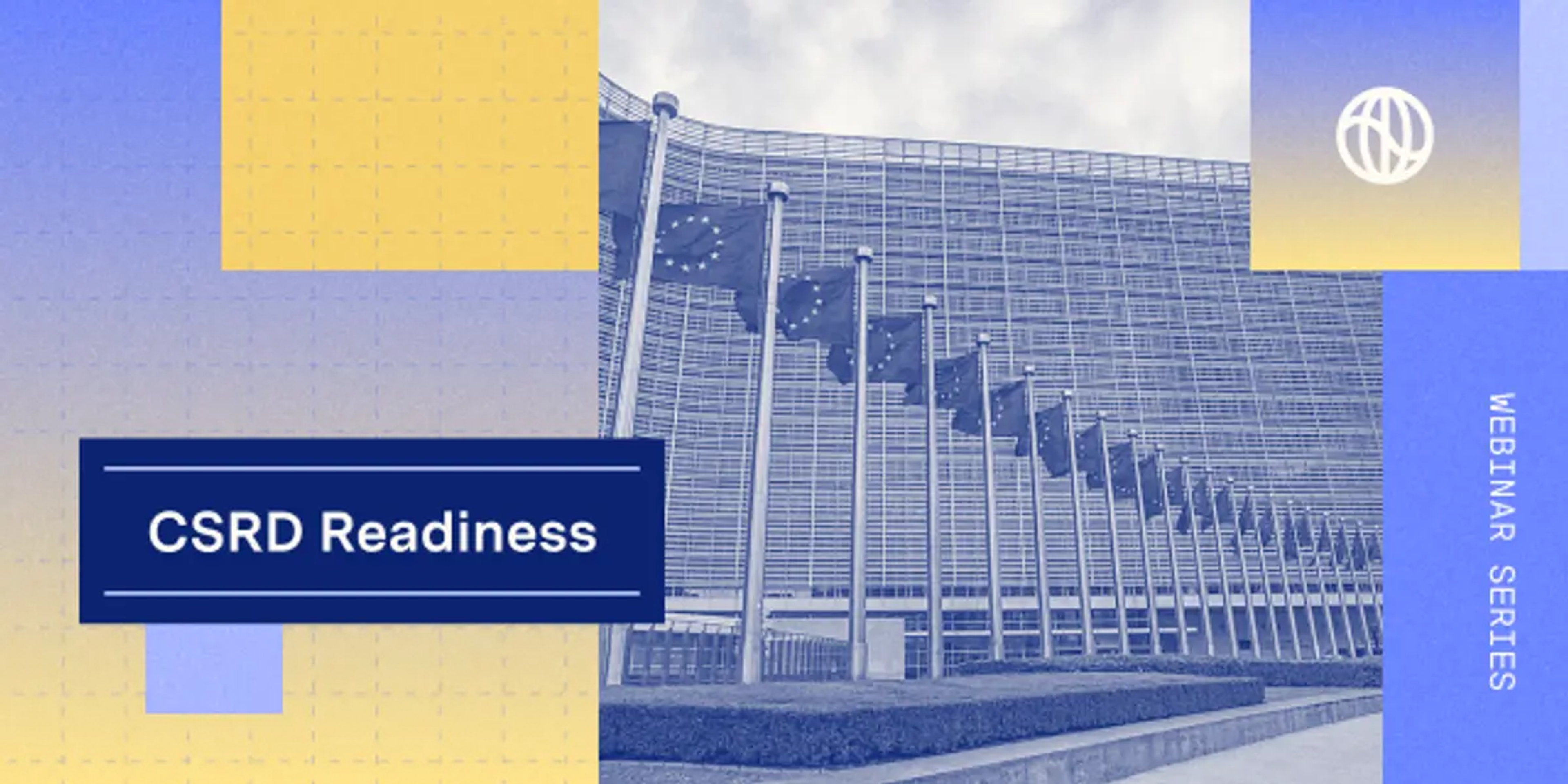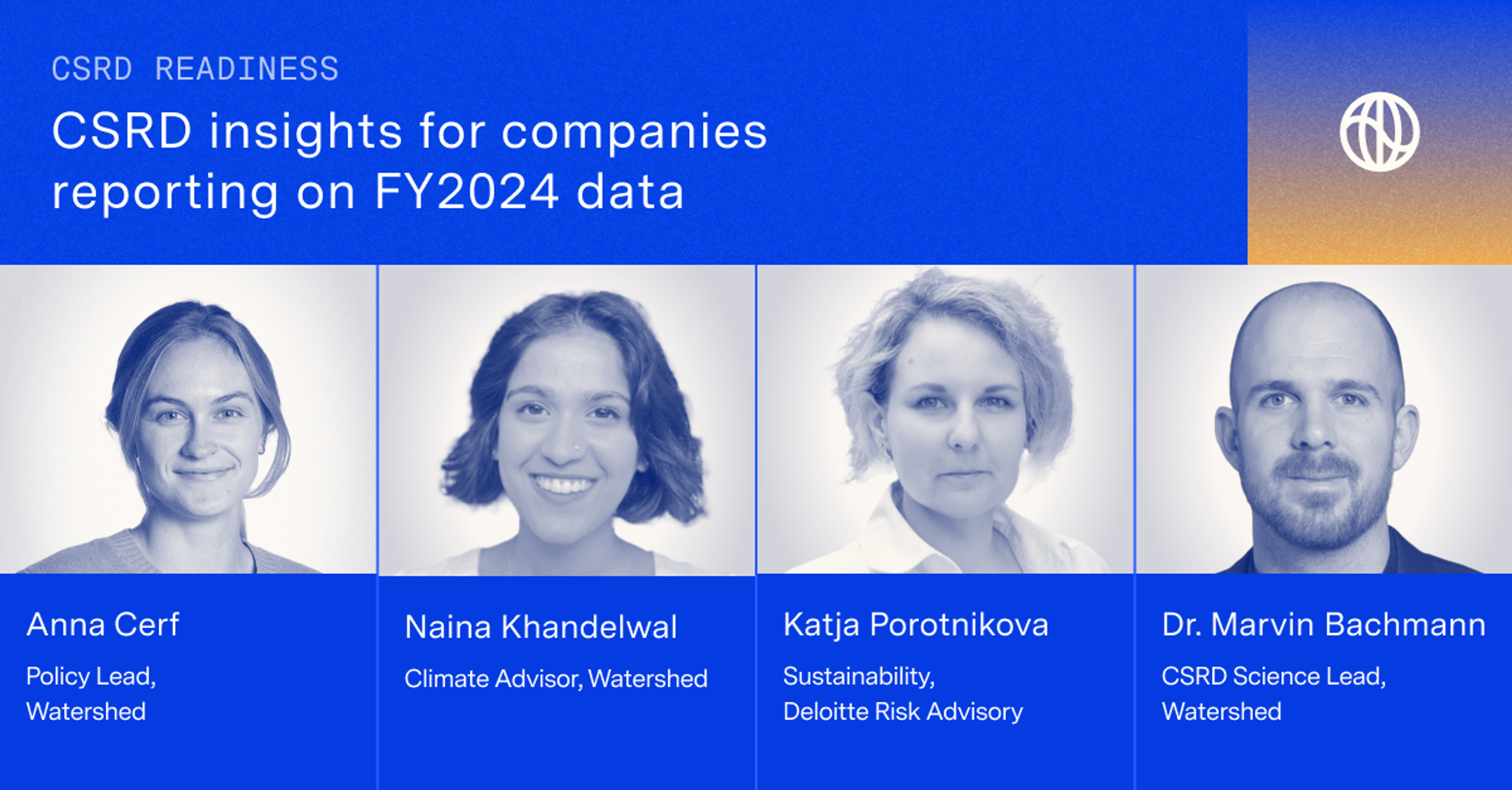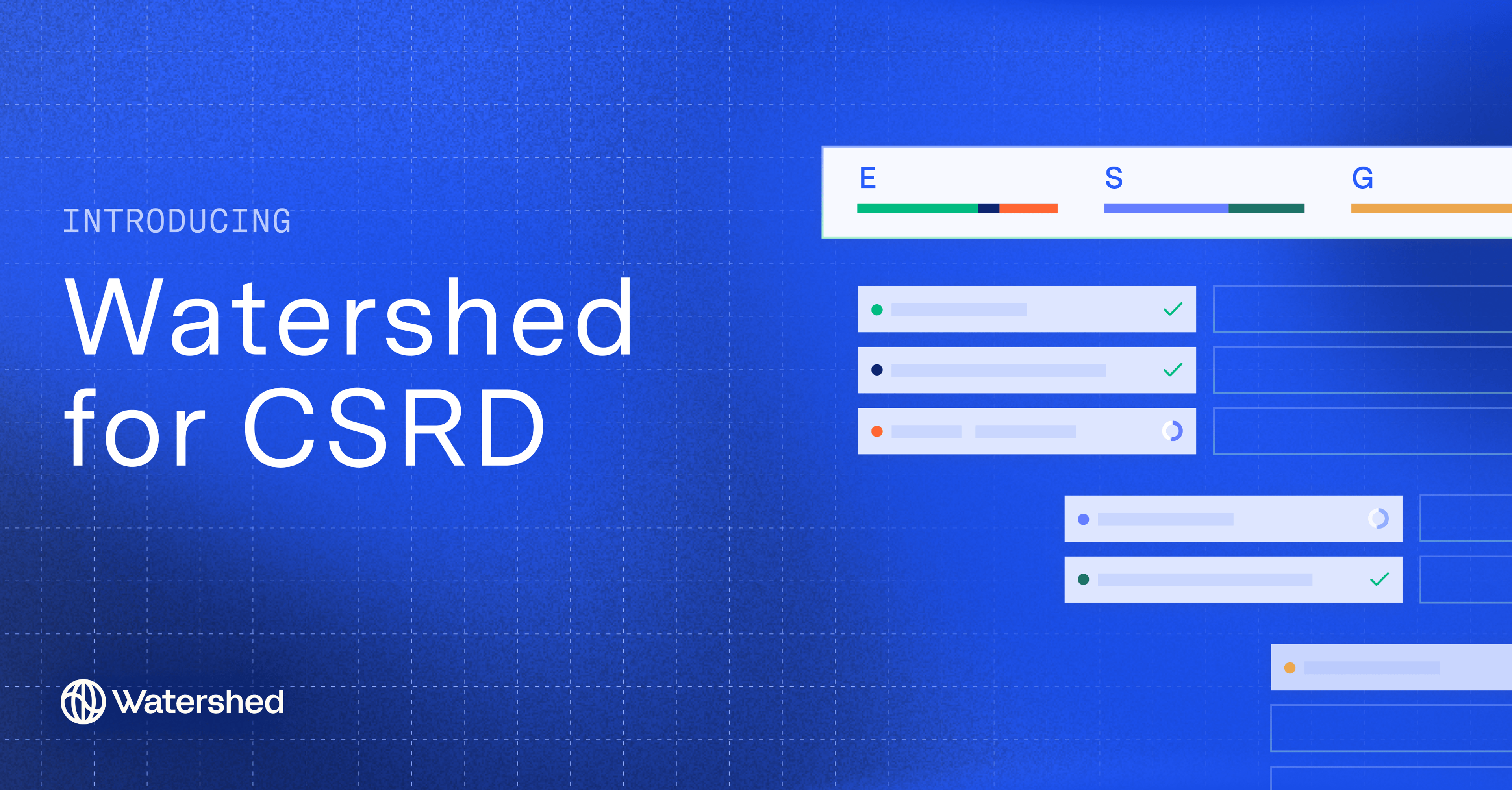Watershed’s CSRD Readiness series is a virtual event program designed to help companies navigate CSRD. In sessions led by our experts and partners, you’ll get equipped with knowledge for how to complete a CSRD report quickly—and lay the groundwork for continued successful reporting.
Check out all our sessions below:
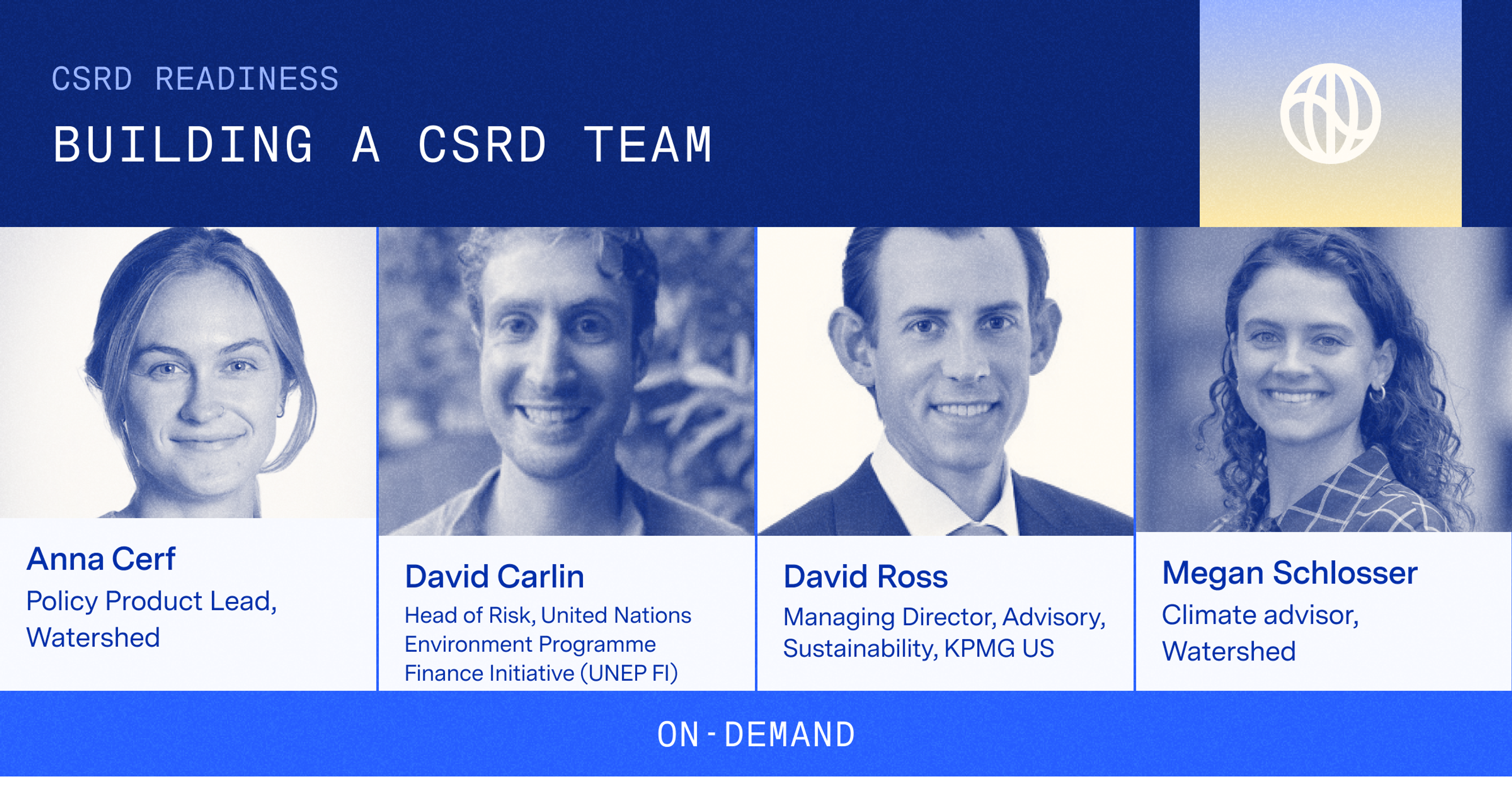
Transition plans in the CSRD and beyond
Global climate regulation is evolving from only requiring emissions disclosures to asking for transition plans. These documents, which outline how companies will address climate impact and prepare for climate risks, are required by the CSDDD (Corporate Sustainability Due Diligence Directive) and the UK’s Transition Plan Taskforce, and companies must disclose transition plan-related details in their CSRD report.
In this session, David Carlin—who led the creation of UNEP Finance Initiative’s risk programming—joined Watershed’s policy team to cover:
- The details of the CSRD’s transition plan requirements, and how they interact with other regulations.
- How companies can streamline CSRD and CSDDD preparation.
- How to create a useful and compliance-ready transition plan.
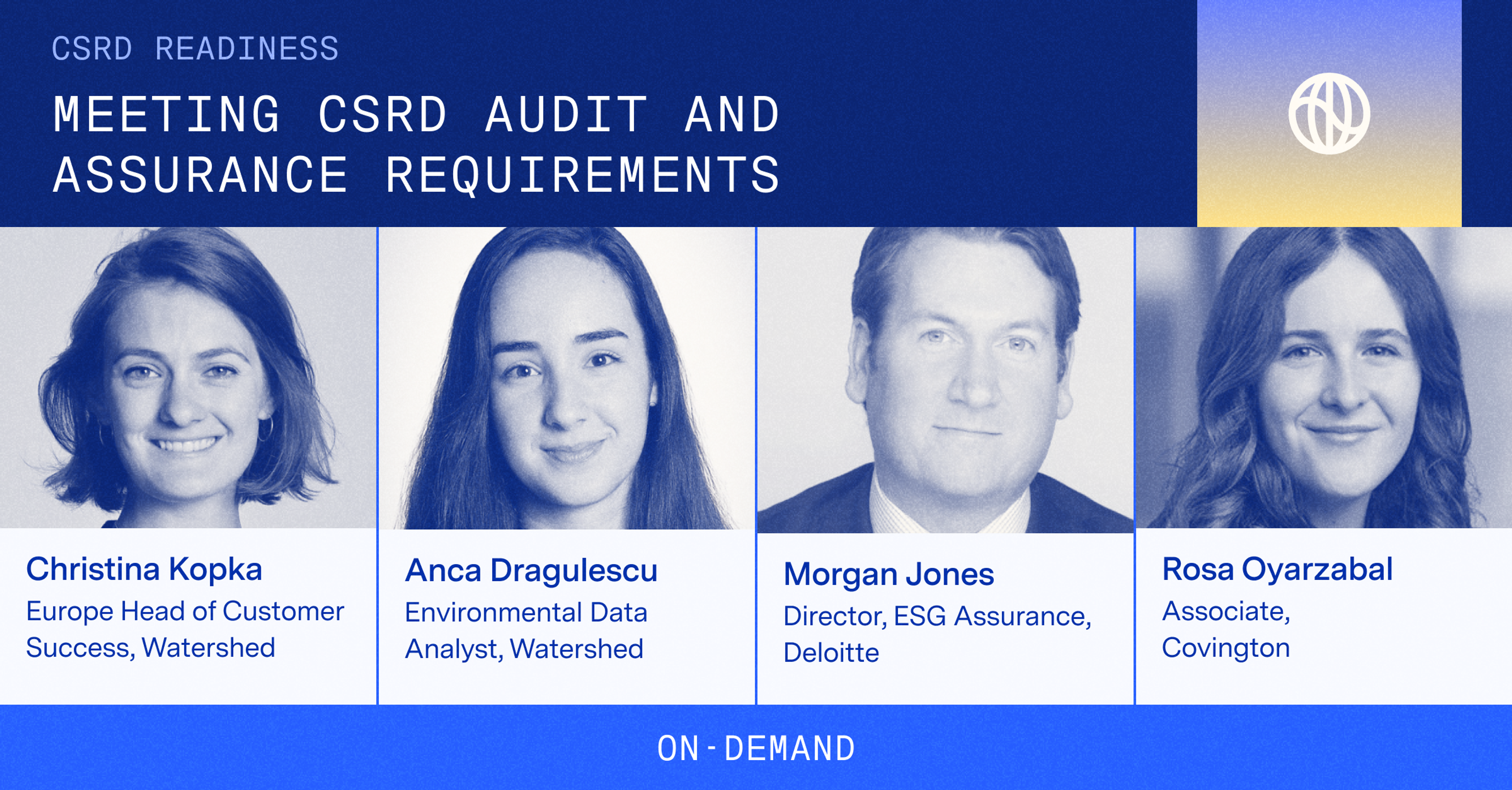
Meeting CSRD audit and assurance requirements
The assurance process on CSRD (Corporate Sustainability Reporting Directive) reports can be an intimidating step for companies that begin disclosing in the next couple of years, especially considering some of the strong member state penalties for reporting incorrectly. Alongside experts in ESG audit, assurance, and law, learn how to successfully navigate the CSRD assurance requirements and feel confident you’ll be able to pass audit.
This discussion covers:
- How and when to engage assurance providers.
- How to decide on assurance timelines.
- What information to collect alongside data points, and how.
- How assurance works for qualitative vs quantitative data points.
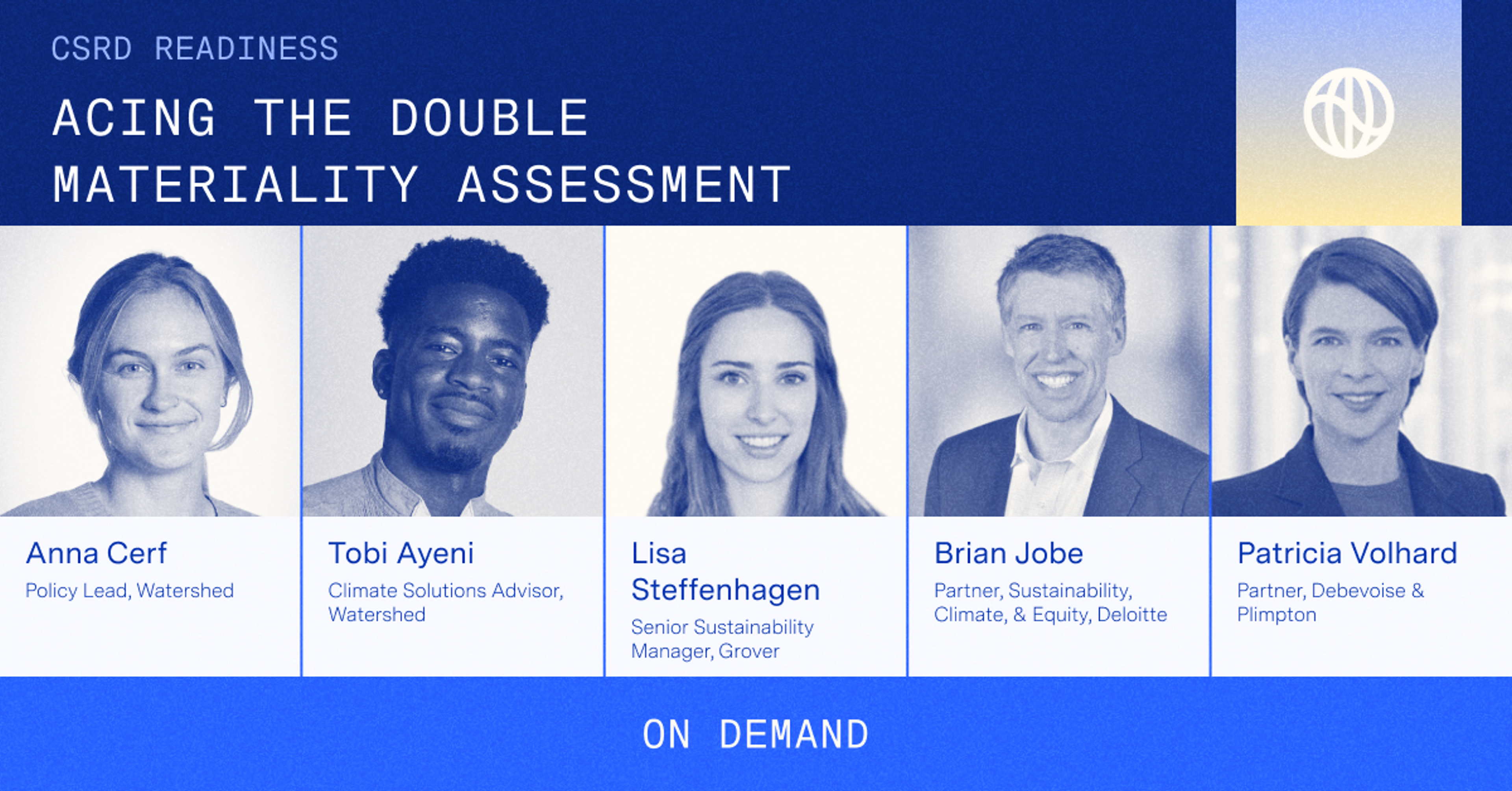
Acing the Double Materiality Assessment (DMA)
The Double Materiality Assessment (DMA) is the starting point in every organisation’s CSRD (Corporate Sustainability Directive) journey, and lays the foundation for successful reporting. Getting the DMA process right ensures you don’t waste time collecting data on topics irrelevant to your company—and the end product will be a document with business value far beyond CSRD compliance.
This session covers:
- Determining environmental and financial materiality.
- Optimising the DMA for future use cases.
- Avoiding the need to double back on standards throughout your CSRD preparation process.
- Tips for efficiency.

Building a CSRD team
Compiling your company’s CSRD (Corporate Sustainability Reporting Directive) report is a cross-functional effort that requires collaboration across diverse teams, from finance and facilities to procurement and beyond. In this session, our expert speakers discussed how companies are approaching internal resourcing for CSRD preparation, and share insights into the most successful strategies.
Topics covered include:
- Which teams should be involved, and when.
- How businesses are keeping large, cross-functional teams organised.
- How the CSRD process compares to preparing for other disclosures like CDP.
